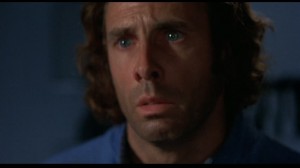Silent Running
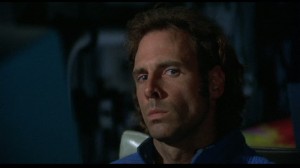 One of the oddest combinations of producer and director in the history of Hollywood occurred on Paul Schrader’s American Gigolo, with Richard Gere as a moody, shallow gigolo. It contains Schrader’s (writer of Taxi Driver, director of Mishima, Hardcore, and Auto Focus) usual themes of guilt and introspection. American Gigolo was produced by Jerry Bruckheimer, whose films include Top Gun, Armageddon, Beverly Hills Cop, and the Pirates of the Caribbean series, and his contribution to American Gigolo which consisted of the addition of a wholly unnecessary murder subplot. The resulting clash resulted in American Gigolo playing like a brooding drama, but you know, with Venetian blinds and a synth-pop score.
One of the oddest combinations of producer and director in the history of Hollywood occurred on Paul Schrader’s American Gigolo, with Richard Gere as a moody, shallow gigolo. It contains Schrader’s (writer of Taxi Driver, director of Mishima, Hardcore, and Auto Focus) usual themes of guilt and introspection. American Gigolo was produced by Jerry Bruckheimer, whose films include Top Gun, Armageddon, Beverly Hills Cop, and the Pirates of the Caribbean series, and his contribution to American Gigolo which consisted of the addition of a wholly unnecessary murder subplot. The resulting clash resulted in American Gigolo playing like a brooding drama, but you know, with Venetian blinds and a synth-pop score.
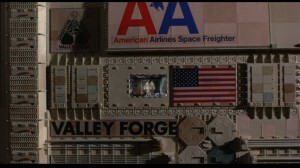 Douglas Trumbull’s Silent Running has a similarly strange group of above-the-line talent. Michael Cimino (director of The Deer Hunter, Heaven’s Gate, Thunderbolt and Lightfoot, and Year of the Dragon) and Steven Bochco (writer/producer/creator of L.A. Law, Doogie Howser, NYPD Blue, and Hill Street Blues) are two of the three credited writers, and Trumbull’s own work which included the special effects on 2001 and later on creating the Back to the Future: The Ride type of interactive movie/amusement ride make Silent Running play like three sides of a circle. That notable over-the-top villain Bruce Dern is the lead and on-screen as the only human character for nearly ¾ of the film, adds another layer of tonal imbalance. All four parties try to wrest thematic control throughout Silent Running, but it appears that Trumbull was the winner, and not just for the heavy focus on detailed miniatures and special effects (dated now, state-of-the-art in 1971).
Douglas Trumbull’s Silent Running has a similarly strange group of above-the-line talent. Michael Cimino (director of The Deer Hunter, Heaven’s Gate, Thunderbolt and Lightfoot, and Year of the Dragon) and Steven Bochco (writer/producer/creator of L.A. Law, Doogie Howser, NYPD Blue, and Hill Street Blues) are two of the three credited writers, and Trumbull’s own work which included the special effects on 2001 and later on creating the Back to the Future: The Ride type of interactive movie/amusement ride make Silent Running play like three sides of a circle. That notable over-the-top villain Bruce Dern is the lead and on-screen as the only human character for nearly ¾ of the film, adds another layer of tonal imbalance. All four parties try to wrest thematic control throughout Silent Running, but it appears that Trumbull was the winner, and not just for the heavy focus on detailed miniatures and special effects (dated now, state-of-the-art in 1971).
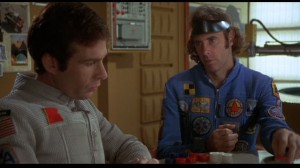 Cimino and Bochco may have envisioned Silent Running as a humanistic parable about ego gone wild (a fusing of their general dramatic interests), where Bruce Dern plays a member of an outer space team, ordered to destroy their remaining man-made forestry and make their way back to earth for re-colonization, the implication being that pollution has ruined it previously. But Trumbull turns the entire movie into a plea for environmentalism (Earth Day in Space), by excusing Dern’s murder of his thoughtless and shallow crew members as a necessary evil, without ever making it clear what Dern plans to do with his newly jettisoned spaceship/forest, other than float into oblivion. Maybe it’s a hint that activists should have a full plan of attack before engaging in nefarious deeds, but that gives more credit to Trumbull for organization than he deserves, and he hasn’t heeded his own warning anyway.
Cimino and Bochco may have envisioned Silent Running as a humanistic parable about ego gone wild (a fusing of their general dramatic interests), where Bruce Dern plays a member of an outer space team, ordered to destroy their remaining man-made forestry and make their way back to earth for re-colonization, the implication being that pollution has ruined it previously. But Trumbull turns the entire movie into a plea for environmentalism (Earth Day in Space), by excusing Dern’s murder of his thoughtless and shallow crew members as a necessary evil, without ever making it clear what Dern plans to do with his newly jettisoned spaceship/forest, other than float into oblivion. Maybe it’s a hint that activists should have a full plan of attack before engaging in nefarious deeds, but that gives more credit to Trumbull for organization than he deserves, and he hasn’t heeded his own warning anyway.
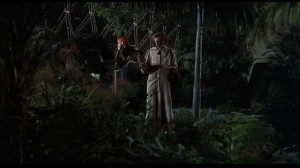 Really, Dern is just a pacifist hippie murderer in space, dressed like a monk, and spending his time interacting with the rather expressive robots on board (the robots are by far the best part of the film, if only for their reactions to Dern, nodding never went so far). While there’s the suggestion that the crew members are bored and detached, Silent Running never really addresses it, not even in the comedic fashion that John Carpenter’s Dark Star really explores how hippies might deal with the dull everyday routine of futuristic space travel. Trumbull caps his intentions by throwing in mournful, screeching Joan Baez songs to cover up the deadness of the material in the final two acts (the songs may be on the conservationist theme of the film, but they are just off-putting).
Really, Dern is just a pacifist hippie murderer in space, dressed like a monk, and spending his time interacting with the rather expressive robots on board (the robots are by far the best part of the film, if only for their reactions to Dern, nodding never went so far). While there’s the suggestion that the crew members are bored and detached, Silent Running never really addresses it, not even in the comedic fashion that John Carpenter’s Dark Star really explores how hippies might deal with the dull everyday routine of futuristic space travel. Trumbull caps his intentions by throwing in mournful, screeching Joan Baez songs to cover up the deadness of the material in the final two acts (the songs may be on the conservationist theme of the film, but they are just off-putting).
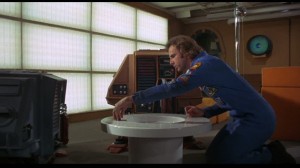 It isn’t as if a solo act in space is impossible, Sam Rockwell did it to perfection earlier this year in Moon, which was clearly influenced by Silent Running. But Dern’s character, Freeman Lowell, is a bore, and whatever we’re given to understand him and explain his mindset in the first few minutes of the movie, is supposed to carry us for the remaining 85 minutes. Dern plays Lowell as if famed painter and verbal hypnotist Bob Ross had a homicidal impulse if anyone tried to steal his canvas.
It isn’t as if a solo act in space is impossible, Sam Rockwell did it to perfection earlier this year in Moon, which was clearly influenced by Silent Running. But Dern’s character, Freeman Lowell, is a bore, and whatever we’re given to understand him and explain his mindset in the first few minutes of the movie, is supposed to carry us for the remaining 85 minutes. Dern plays Lowell as if famed painter and verbal hypnotist Bob Ross had a homicidal impulse if anyone tried to steal his canvas.



